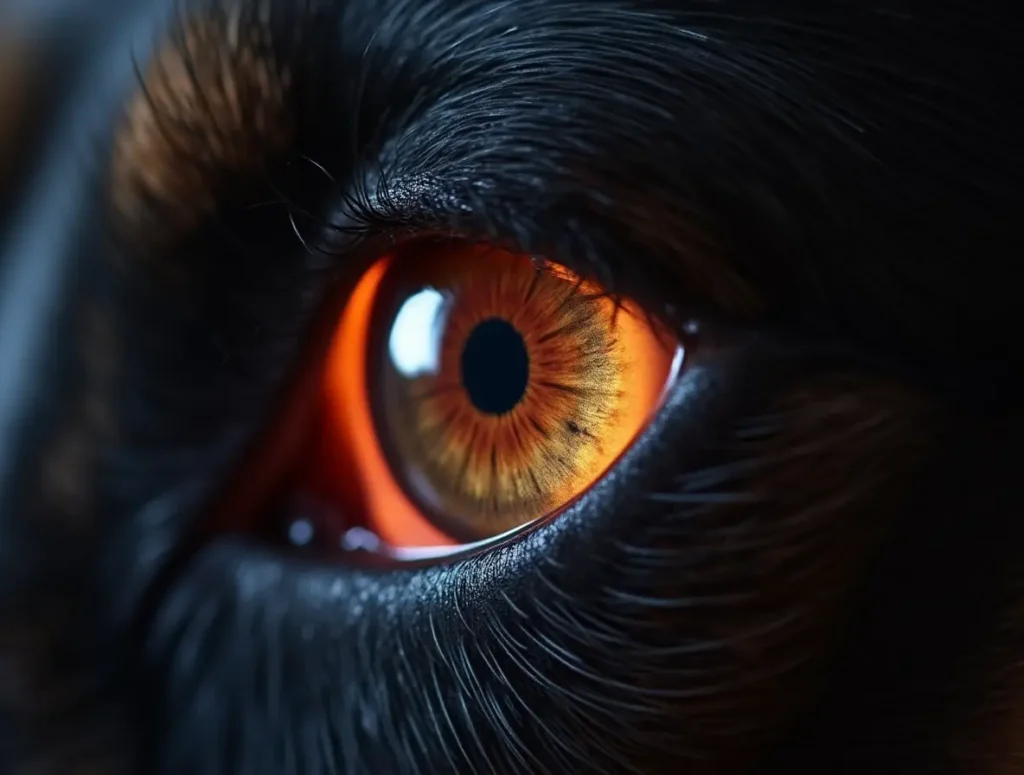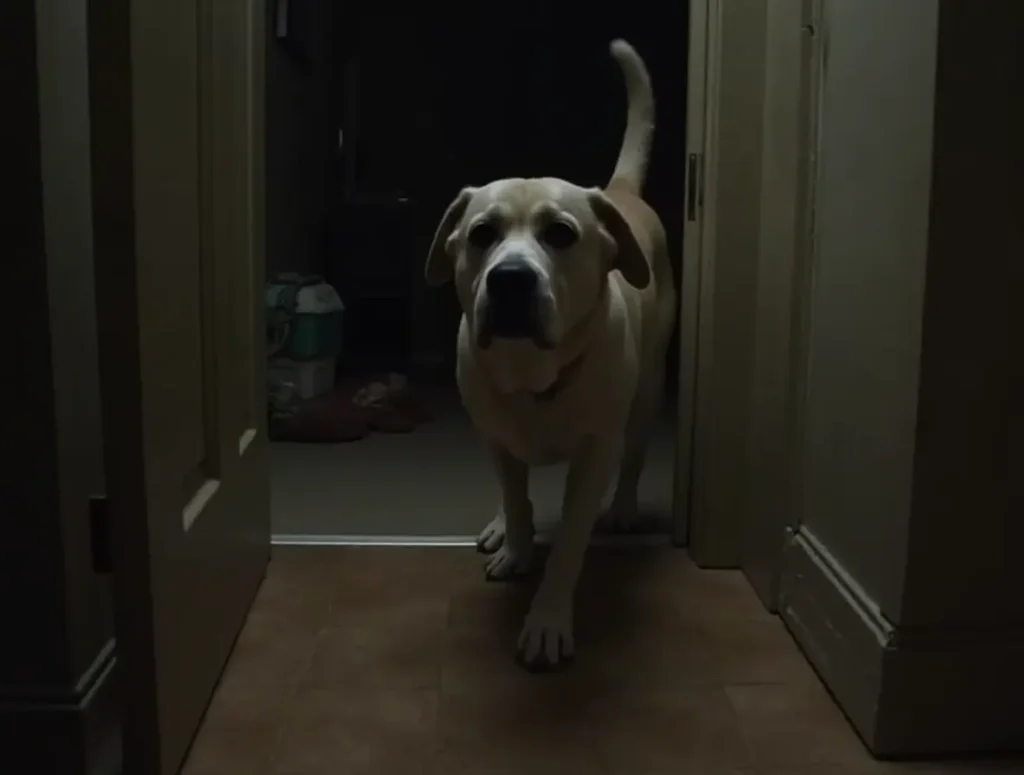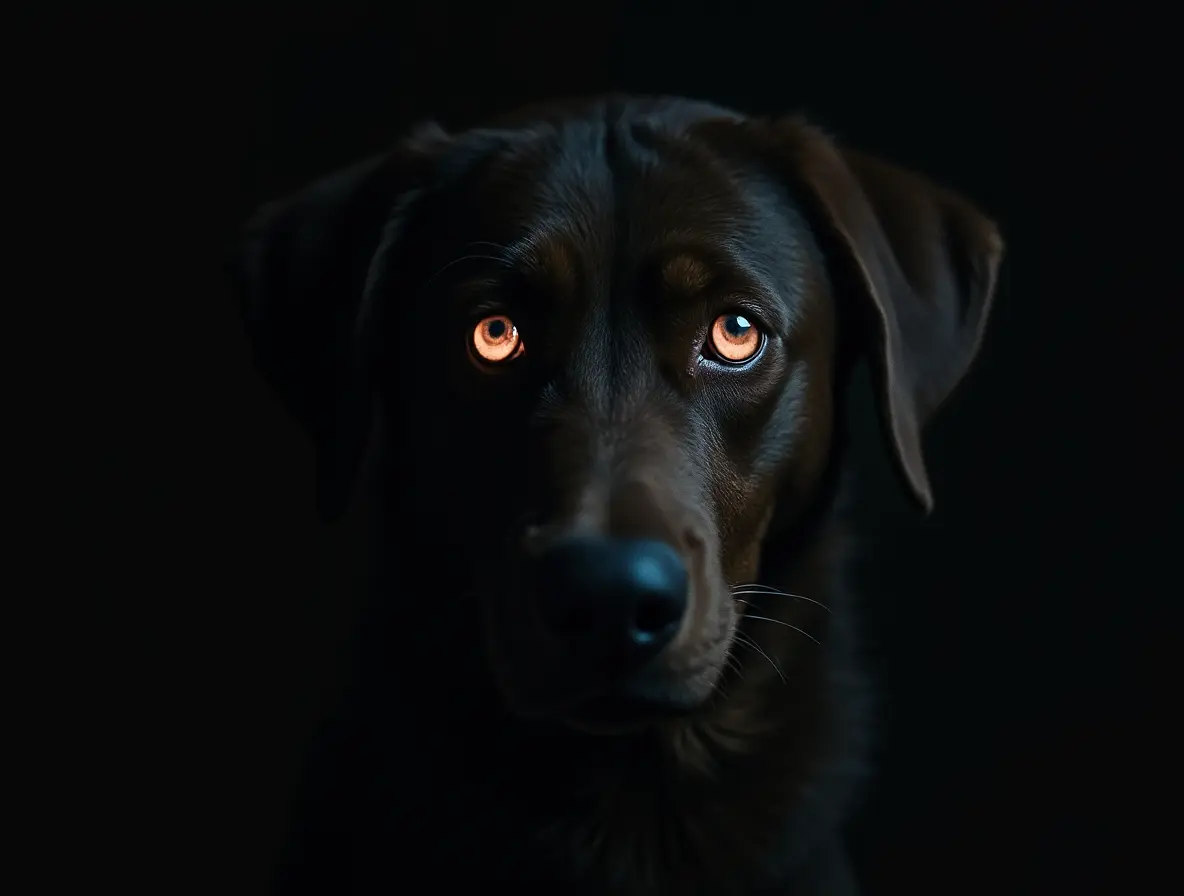Introduction
Have you ever noticed your dog navigating effortlessly in a dimly lit room while you struggle to find your way? This often sparks the question: Can dogs see in the dark? The answer might surprise you! Dogs have a unique visual system designed for low-light conditions, making them much better at seeing in the dark than humans. In this article, we’ll dive into the science behind canine night vision, what makes their eyesight special, and whether dogs can see in total darkness.
How Do Dogs See Compared to Humans?
Dogs and humans perceive the world differently due to variations in eye structure. Here’s how their vision compares:
✅ Rod Cells vs. Cone Cells: Humans have more cone cells (responsible for color and daylight vision), whereas dogs have more rod cells, which enhance low-light vision.
✅ Tapetum Lucidum: This special reflective layer in a dog’s eyes amplifies available light, giving them a glowing-eye effect at night.
✅ Peripheral Vision: Dogs have a wider field of view, allowing them to detect movement in dim lighting.
While humans rely on bright lighting for clear vision, dogs are naturally adapted to see in low-light conditions.
How Well Can Dogs See in the Dark?
Dogs are not completely night-blind, but they don’t have perfect night vision either. Their ability to see in the dark depends on several factors:
🔹 Light Sensitivity: Their increased number of rod cells helps them detect even the faintest light sources.
🔹 Motion Detection: Dogs excel at spotting movement in darkness, which is an evolutionary advantage for hunting.
🔹 Brightness Perception: While not as sharp as true nocturnal animals like owls, dogs can still see relatively well in dim conditions.
However, dogs cannot see in complete darkness—they still need some ambient light to process images.
The Role of Tapetum Lucidum in Dog Vision

One of the biggest advantages dogs have is the tapetum lucidum, a mirror-like structure behind the retina. This feature:
✔ Reflects light back through the retina to improve visibility in low-light settings.
✔ Enhances brightness perception, making objects appear clearer.
✔ Causes their eyes to glow when exposed to direct light in the dark.
Without this adaptation, dogs would struggle to see in dim conditions, just like humans.
Do All Dogs Have the Same Night Vision?
Not all dogs have equal night vision capabilities. Some factors that influence their ability to see in the dark include:
🐶 Breed Differences: Breeds like Labradors, Huskies, and German Shepherds tend to have better night vision due to their working backgrounds.
👀 Eye Shape and Size: Dogs with larger eyes often have improved light reception.
👴 Age-Related Decline: Older dogs may experience reduced night vision due to cataracts or retinal degeneration.
If you notice your dog struggling in the dark, a veterinary checkup may be necessary to rule out any vision problems.
Signs Your Dog Has Poor Night Vision

If your dog is hesitant in low-light environments, they may have night vision issues. Common signs include:
❌ Bumping into objects at night
❌ Avoiding dark areas or being hesitant to move
❌ Increased anxiety in dimly lit spaces
❌ Difficulty tracking moving objects in the dark
Conditions like progressive retinal atrophy (PRA) or cataracts can impact night vision, so it’s important to monitor any changes.
Can You Improve Your Dog’s Night Vision?
While you can’t change a dog’s natural vision, you can enhance their ability to navigate in darkness:
✅ Provide dim night lighting in frequently used areas.
✅ Keep floors clear of obstacles to prevent injuries.
✅ Feed a diet rich in antioxidants to support eye health.
✅ Use reflective collars and leashes for nighttime walks.
✅ Visit a veterinarian if you notice vision-related issues.
These small changes can make a big difference in your dog’s confidence and safety.
Conclusion
So, can dogs see in the dark? Absolutely—but not in total darkness. Their superior low-light vision allows them to see much better than humans at night, thanks to specialized eye structures like rod cells and the tapetum lucidum. However, their vision isn’t perfect, and they still rely on some light to see clearly. By understanding their unique eyesight, you can ensure your pup stays safe and comfortable, no matter the time of day!
FAQs About Dog Night Vision
- Can dogs see in complete darkness?
No, dogs need at least some ambient light to see. They cannot see in pitch-black conditions. - Why do my dog’s eyes glow in the dark?
The glow is caused by the tapetum lucidum, a reflective layer in their eyes that enhances night vision. - Do certain dog breeds have better night vision?
Yes, working breeds like Labradors, Huskies, and German Shepherds tend to have superior night vision. - Do dogs have better night vision than humans?
Yes, dogs see better in low-light conditions due to their high number of rod cells and reflective eye structure. - Can dogs see colors at night?
Dogs have limited color vision and mainly see shades of blue and yellow, even in darkness. - Do puppies have good night vision?
Puppies’ night vision develops over time, and they may struggle to see in the dark initially. - What causes night blindness in dogs?
Conditions like progressive retinal atrophy (PRA), cataracts, or age-related degeneration can impair night vision. - How can I help my dog feel comfortable in the dark?
Use nightlights, keep paths clear, and offer positive reinforcement to boost confidence. - Can I test my dog’s night vision at home?
Yes, observe if your dog hesitates in the dark, bumps into objects, or has trouble tracking moving objects at night. - Should I be concerned if my dog has trouble seeing at night?
Yes, any noticeable changes in vision should be checked by a veterinary ophthalmologist to rule out health issues.

